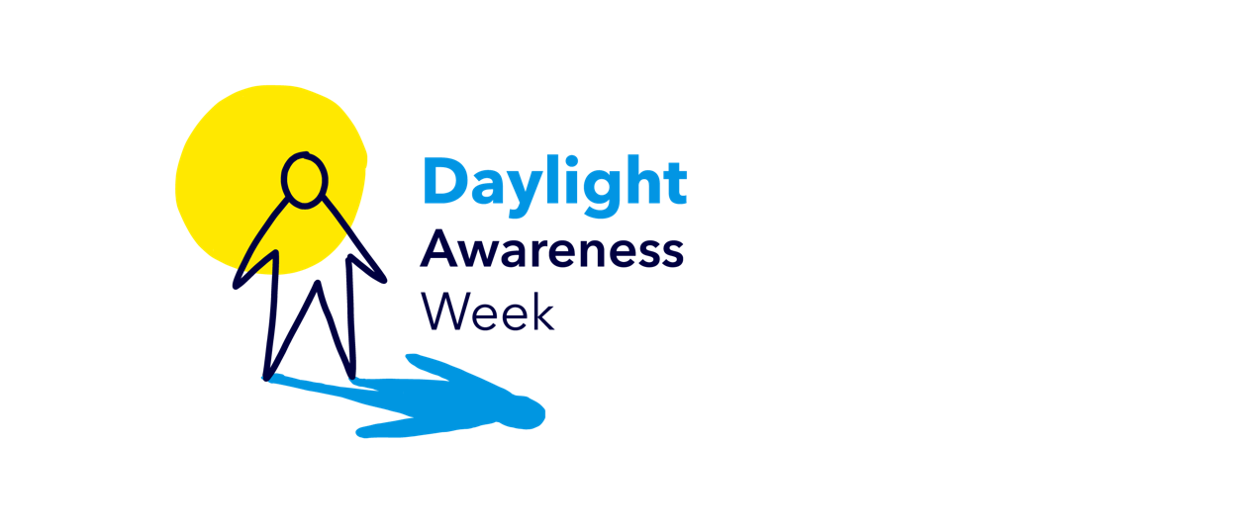Daylight Awareness Week 2024
Daylight as a force for good
28 October – 2 November 2024
Celebrate daylight with us!
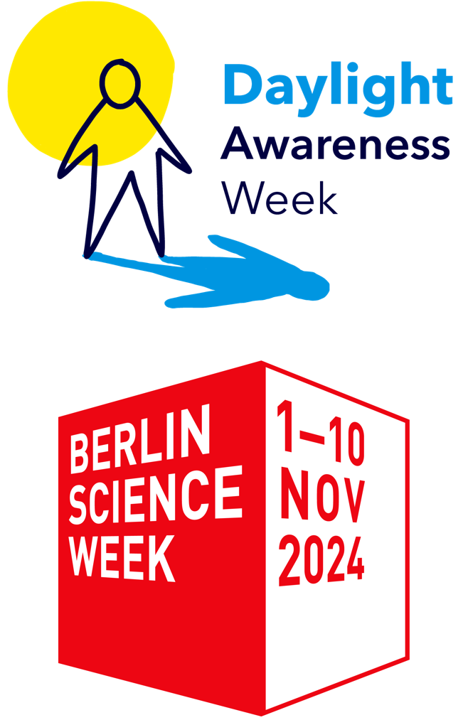
Daylight matters. It is a vital force that conditions our health and well-being, as well as the environment we live in. This year’s Daylight Awareness Week took a closer look at how daylight can help tackle some of the big challenges that we face today. A range of online talks, podcasts and articles explored the potential of natural light as “a force for good”, particularly in terms of health and sustainability.
Unlike in previous years, this edition was not limited to online exchanges. This year, Daylight Awareness Week literally went out to meet the public, featuring no fewer than three events at the Berlin Science Week festival on 1–2 November 2024 – a panel discussion, an exhibition and a workshop for kids.
We invited everyone to participate by joining our events and sharing thoughts, experiences, and content on our topics. Use #DaylightWeek on social media to spread the word and engage in meaningful conversations.
Online Forum
Daylight is essential to public health and the environment. Despite being ubiquitous and in principle free, it is not equally accessible to everyone. Today, half of the world’s population lives in urban areas and as cities continue to grow and become ever denser, access to daylight is increasingly scarce. For many, this is compounded by poorly designed built environments, unfavourable working conditions, air pollution, and little awareness of the importance of daylight. What can be done to remedy this? How can we ensure universal and equitable access to daylight?
Join our online forum and share solutions that could bring us closer to achieving daylight justice not just for humans but for all living beings!
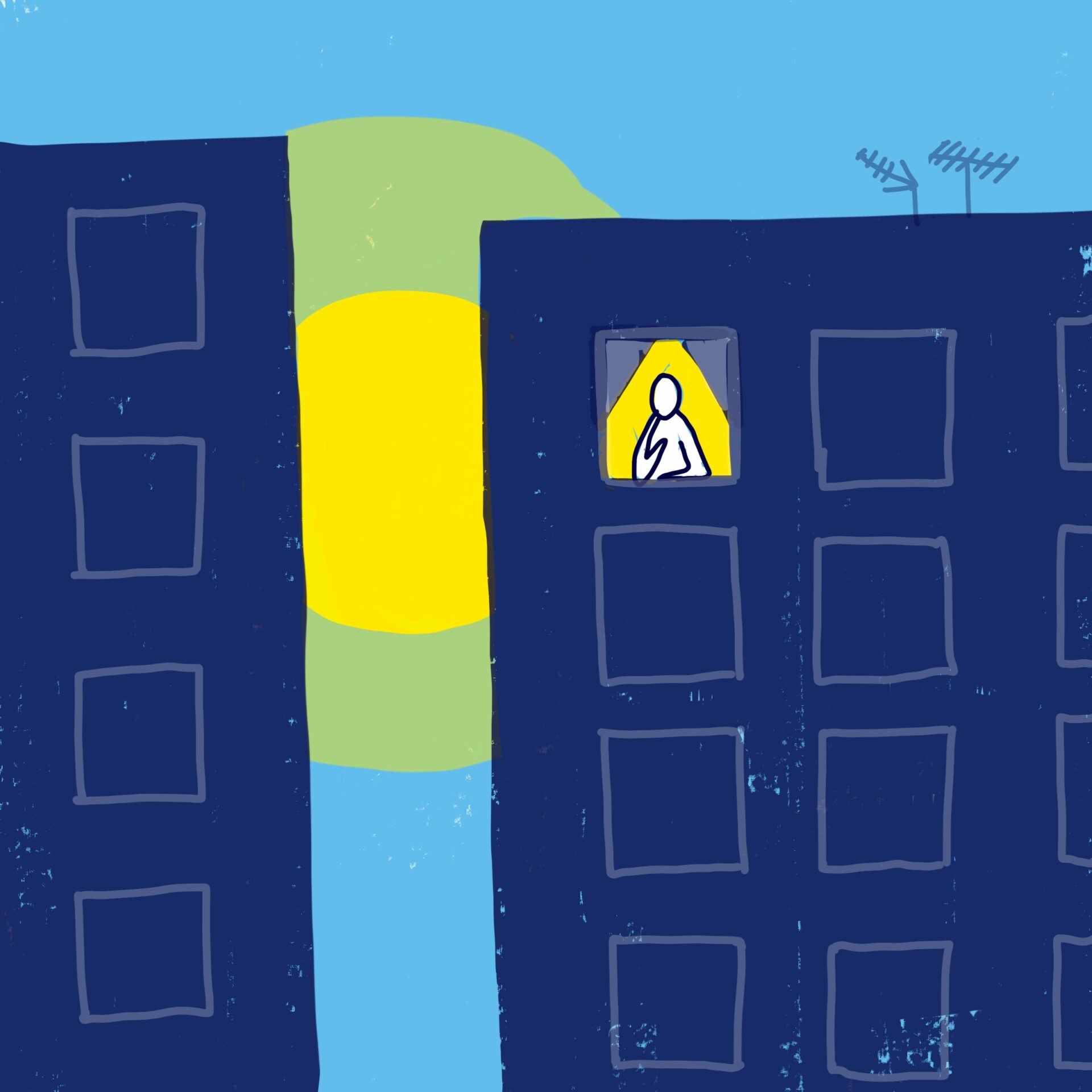
Highlights
Each day of the week was devoted to a different theme, which was then explored through a range of resources such as webinars, videos, podcast episodes or blog articles. Scroll down and click on the titles to discover our content.
WATCH this year’s video recordings

This resulted from a collaboration with Jan-Frieder Harmsen and his podcast CHRONO:MEDICINE (previsouly named 247MUSCLE).
The episode is divided into two parts:
Listen to part 1 (also available on Spotify, and Apple Podcast)
Listen to part 2 (also available on Spotify, and Apple Podcast)

The episode was created in partnership with Light O’Clock, a regular podcast produced by the Translational Sensory & Circadian Neuroscience Research Group at the Max Planck Institute for Biological Cybernetics. The episode is hosted by Carolina Guidolin.
Listen to the episode (also available on Spotify and Apple Podcast)
by Lisa Heschong (2024)
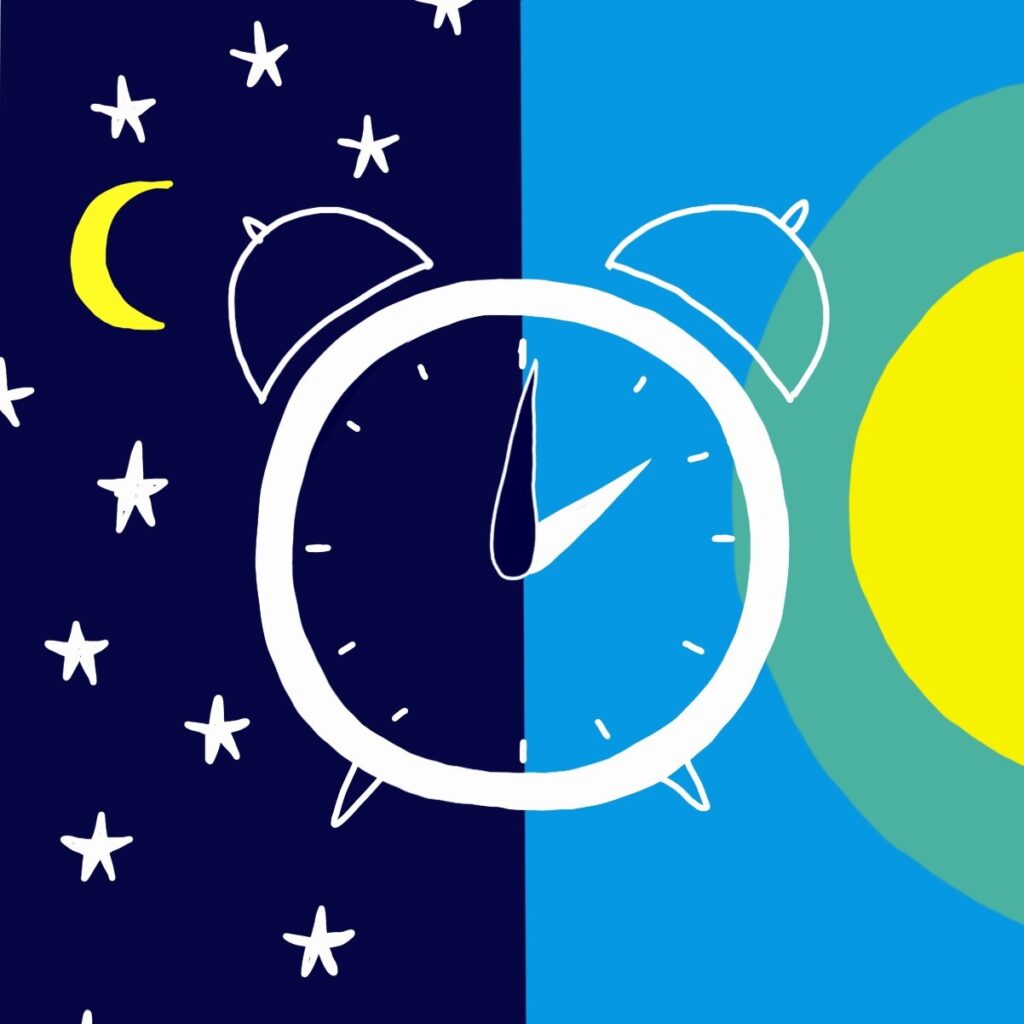 “We are lucky that our planet rotates. During the day, the sun’s intense radiation warms the earth and brightens our beautiful blue atmosphere. At night, in the sun’s dark shadow, the earth cools, sending its heat back out into infinite space. Because of its 24-hour rotation, no one face of the planet gets burned by unrelenting radiation, or is forever deprived of the sun’s life-giving energy…”
“We are lucky that our planet rotates. During the day, the sun’s intense radiation warms the earth and brightens our beautiful blue atmosphere. At night, in the sun’s dark shadow, the earth cools, sending its heat back out into infinite space. Because of its 24-hour rotation, no one face of the planet gets burned by unrelenting radiation, or is forever deprived of the sun’s life-giving energy…”
by Lynne Peeples (2024)
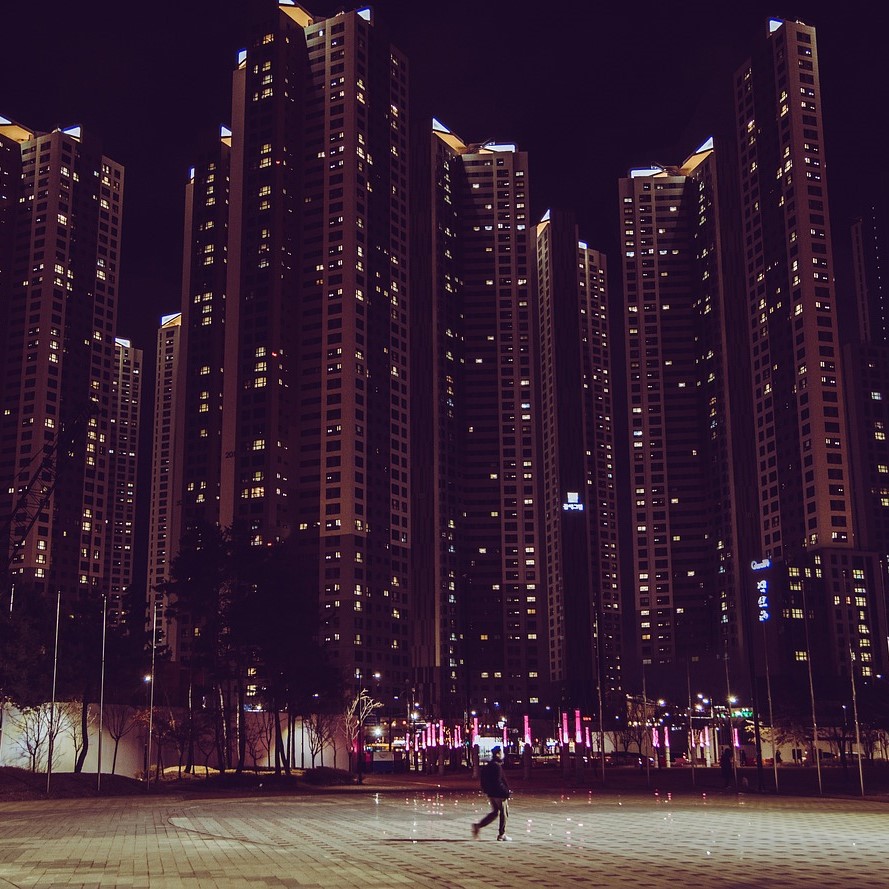 “Skylines around the world—from Denver to Delhi—are rapidly rising and densifying to accommodate growing urban populations. The efforts are well-intentioned; making cities compact can reduce energy use. Yet it can also introduce other environmental and public health problems, such as a diminished distinction between night and day…”
“Skylines around the world—from Denver to Delhi—are rapidly rising and densifying to accommodate growing urban populations. The efforts are well-intentioned; making cities compact can reduce energy use. Yet it can also introduce other environmental and public health problems, such as a diminished distinction between night and day…”
by Paul Bogard (2024)
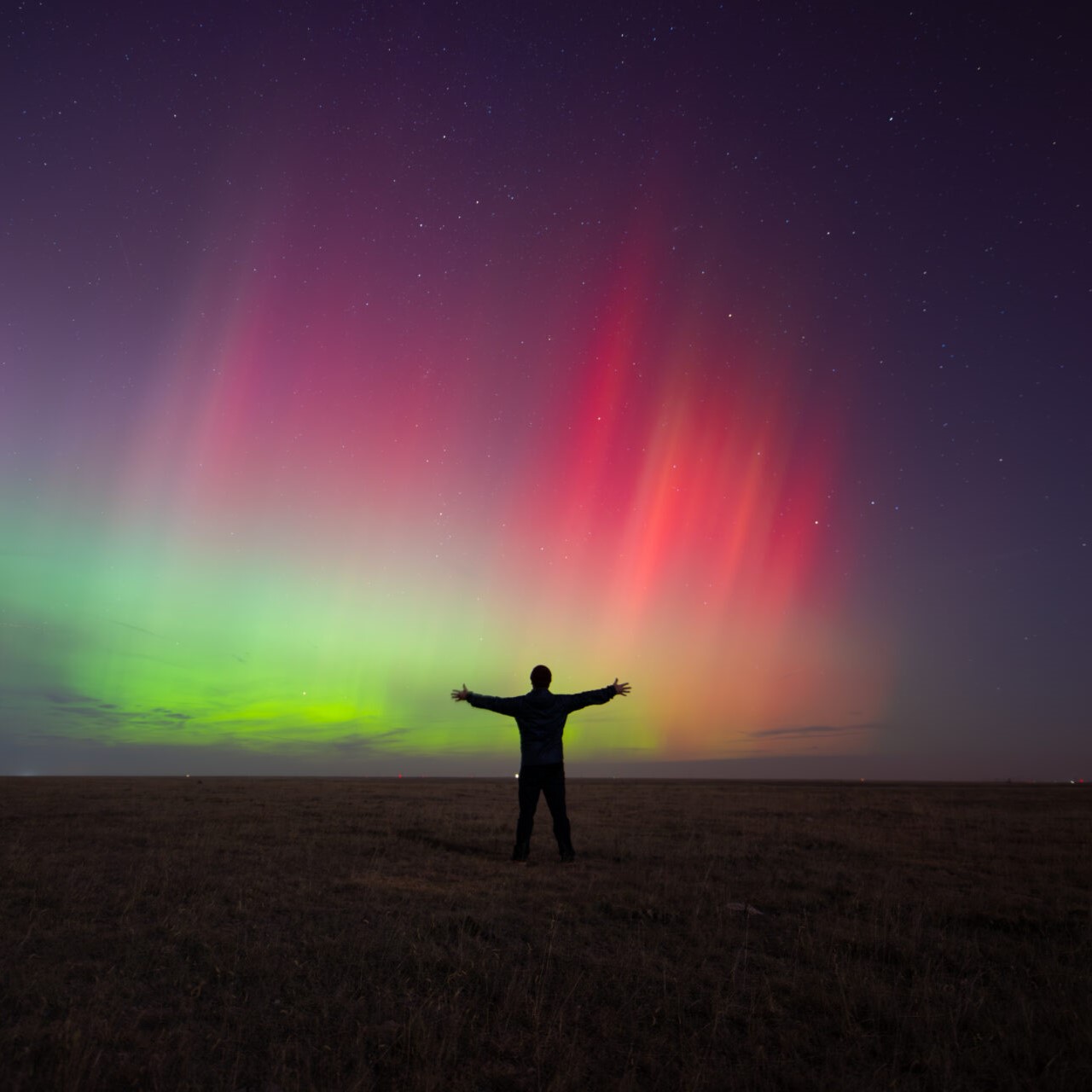 “I wish to speak a word for darkness, for that natural quality on which so much depends, the matching half to natural daylight, both so valuable for life. It makes sense to consider natural darkness on Halloween, a celebration that plays with our fears, because it’s our fear of the dark that often separates us from the value of natural night. Just as we take for granted the benefits of daylight, so we live in ignorance of the dark. But this can change…”
“I wish to speak a word for darkness, for that natural quality on which so much depends, the matching half to natural daylight, both so valuable for life. It makes sense to consider natural darkness on Halloween, a celebration that plays with our fears, because it’s our fear of the dark that often separates us from the value of natural night. Just as we take for granted the benefits of daylight, so we live in ignorance of the dark. But this can change…”
Overview of materials and resources published day-by-day
(Click on the titles for more details)
Illustrated by Marina Roa from SenseTribe
To kick off Daylight Awareness Week, we will look at the extensive topic of “Daylight as a force for health”. Over the past several decades, research into sunlight and its effects on organisms has brought about a significant leap in our knowledge of how important daylight is for our health and well-being. Understanding your inner clock may help you live a healthier and happier life, so feel free to browse our content and find out more.
We are delighted to bring you an exciting webinar developed in collaboration with artist and researcher Jo Joelson. She has brought together a diverse panel of experts to discuss our theme for the day in more detail.
The webinar “Geographies of Light” will address the impact of seasonal light on human behaviour, health and well-being; how light affects our perception of place; and the role of creative practice in understanding these relationships.
From 17:00 to 18:30 CET, you are invited to join and interact online with:
- Alec Finlay, Artist and Poet, UK
- Prof. Hayden Lorimer, Human Geography and and creative geohumanities, University of Edinburgh, UK
- Prof. Katrin Anna Lund, Social Anthropologist, University of Iceland
- Prof. Hester Parr, Human Geography and cross-disciplinary mental health research, University of Glasgow, UK
Discussion moderated by:
- Dr Jo Joelson, Artist, Author and Visiting Fellow at University of Westminster
Dr Jo Joelson will introduce the panel, her place-based light projects and current research programme, The Politics of Light: New directions in art, science and aesthetics.
The ESRC ‘Living with SAD” research team Professor Hester Parr (University of Glasgow), Professor Hayden Lorimer (University of Edinburgh) and Scottish based Artist-poet Alec Finlay will discuss the creative practice and interdisciplinary co-design of the public Wintering Well programme as well as profile the poetic manifesto ‘light is a right’.
Dr Katrin Anna Lund (University of Iceland) will share her thinking on landscape as a vital agent in research focused on the perception of landscape, with a special emphasis on walking and narratives.
podcast
with Christian Cajochen
Prof. Christian Cajochen (Head of the Centre for Chronobiology at the University of Basel in Switzerland) talks about the impact of daylight on our health, with a special focus on sleep.
This resulted from a collaboration with Jan-Frieder Harmsen and his podcast CHRONO:MEDICINE (previsouly named 247MUSCLE).
The episode is divided into two parts:
Listen to part 1 (also available on Spotify, and Apple Podcast)
Listen to part 2 (also available on Spotify, and Apple Podcast)
Interview with Manuel Spitschan, Speaker of the Daylight Academy Steering Committee (2024)
“We need to communicate more and bring about broad awareness of the internal clock and its health implications. Secondly, we have to find out who would benefit most from improvements. For example, how can we optimize the lighting conditions of shift workers? In general, light at the workplace is an important issue; after all, we spend a lot of time there…”
Read the articleWirz-Justice et al. (DLA Reprints, May 2022)
“Given that light has strong direct effects on mood, cognition, alertness, performance, and sleep, light can be considered a “drug” to treat many clinical conditions. Light therapy is already well established for winter and other depressions and circadian sleep disorders. Beyond visual and non-visual effects via the retina, daylight contributes to prevent myopia in the young by its impact on eye development, and is important for Vitamin D synthesis and bone health via the skin…”
Read the articlewith Russell Foster (2023)
Prof. Russell Foster (Head of the Nuffield Laboratory of Ophthalmology, and Director of the Sleep and Circadian Neuroscience Institute at the University of Oxford) talks about the differential impact of daylight and electric light on health.
This resulted from a collaboration with Jan-Frieder Harmsen and his podcast 247MUSCLE in the context of the Daylight Awareness Week 2023.
The episode is divided into two parts:
Listen to part 1 (also available on Spotify, and Apple Podcast)
Listen to part 2 (also available on Spotify, and Apple Podcast)
by Christine Blume and Manuel Spitschan (2024)
“Dusk and dawn are key times for biology, providing a signal to organisms that it is the end or beginning of the day. As the sun rises and sets, the spectrum of light in the environment undergoes distinct changes. Not only does the overall intensity of light decrease – there are striking changes in the colour of light changing from blue to yellow or vice versa. Human eyes are set up to detect these changes. A recently published study has now taken a close look whether calibrated changes along the blue-yellow dimension also affect our biological clock…”
Read the postHow daylight could help you sleep
TEDx Talk by Christine Blume, sleep scientist at the Centre for Chronobiology of the University of Basel and member of the Daylight Academy
TEDxBasel, 20.12.2022
Maya ethnomedicine: the role of plants and sunlight in an indigenous One Health approach
Presentation held at the DLA Annual Conference 2022 by Mónica Berger González, Universidad del Valle de Guatemala
As the world grows ever larger, more populous and consuming of resources, we are constantly on the search for finding ways of making it more sustainable. Daylight is one of the few natural resources that are free and filled with untapped potential. Whether it be through its role in energy, city planning, or biodiversity, daylight serves a powerful instrument in our journey towards sustainability.
Bueno, B., Kueffer, C., Volf, C., et al. (DLA Reprints, November 2024)
“Daylight is essential for ecosystems and for the physical and mental well-being of people. In densely populated cities, only a small proportion of total daylight is available to support urban greenery and most people have little daily exposure to natural daylight. Despite this, many cities have followed a strategy of densification as a way of preventing urban sprawl and reducing energy consumption…”
Read the articleMarc Perez and Richard Perez (2022)
“Energy on our planet is central to the functioning of our ecosystem and modern human society. This work attempts to put the various renewable and non-renewable energy sources at our disposition into context with extant and future human energy consumption. The 79,000 TWyr of solar energy hitting the earth’s surface annually constitutes the largest readily accessible energetic resource available on earth and the source from which most other (notably fossil) available energy sources are derived…”
Read the articleConference held at ETH Zürich on 11 March 2023
Daylighting and net zero building design
Keynote speech held at the DLA Annual Conference 2022 by Christoph Reinhart, Department of Architecture, Massachusetts Institute of Technology, Cambridge, MA, USA
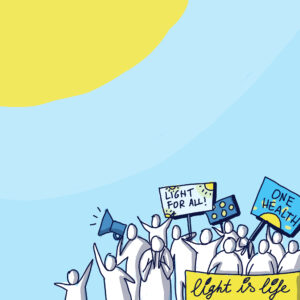
Daylight is essential to public health and the environment. Despite being ubiquitous and in principle free, it is not equally accessible to everyone. Today, half of the world’s population lives in urban areas and as cities continue to grow and become ever denser, access to daylight is increasingly scarce. For many, this is compounded by poorly designed built environments, unfavourable working conditions, air pollution, and little awareness of the importance of daylight. What can be done to remedy this? How can we ensure universal and equitable access to daylight?
Take part now in our public online survey by sharing solutions that could bring us closer to achieving daylight justice not just for humans but for all living beings!
with Seth Warren Rose
Seth, founding director of Eneref Institute, who transitioned from a background in physics to a passion for sustainable development, discusses the essential role of natural light in buildings, emphasizing it as a fundamental right that enhances well-being and productivity. The episode covers how wellness-friendly schools focus on proper ventilation and daylight to support healthy learning environments and explores how market forces are instrumental in driving the adoption of sustainable practices and products. The episode is from the Better Buildings For Humans (BBFH) podcast hosted by Joe Menchefski.
Listen to it on Spotify or Apple Podcast
Lisa Heschong (01 February 2024)
“The World Health Organization lists universal access to clean air, clean water, nutritious food and safe shelter as key components of public health, Lisa Heschong (author, architectural researcher & a fellow of the Illuminating Engineering Society), argues that access to ample daylight, both outdoors and indoors, should be added to that list. Evidence from many different scientific fields reveal that humans live healthier, happier, more productive lives with daily exposure to the natural patterns of sunlight…”
Read the article
Alec Finlay, Hayden Lorimer, Hester Parr, Shawn Bodden (11 September 2023)
“Changes in the weather and the turning of the seasons affect us all – our moods, our habits, our sense of self, and how we relate to the wider world. For some of us, feelings associated with wintertime, when hours of daylight are shorter and the skies overhead often gloomier, have an intensity that can produce negative thought. People who experience Seasonal Affective Disorder (or ‘SAD’) have a distinctive emotional and psychological relationship with sunlight…”
Read the publication
Created as part of the ‘Living with SAD‘ research project.
Print copies of the book can be ordered from Alec Finlay here.
Out of sync in indoor lifestyles? Do we need to reconnect with natural rhythms?
Panel discussion held at the DLA Annual Conference 2023 with Dr Marijke Gordijn, University of Groningen, The Netherlands, Lisa Heschong, independent consultant, USA, Prof. Christoph Küffer, OST Eastern Switzerland University of Applied Sciences and ETH Zurich, Switzerland. Moderated by Prof. Marilyne Andersen, EPFL, Lausanne, Switzerland
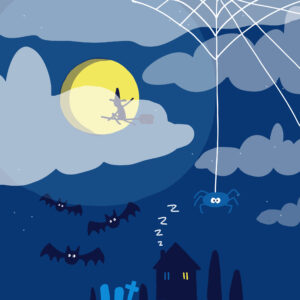
This 31 October, the Daylight Academy is putting on its Halloween costume! Traditionally, Halloween in Northern Europe marked the transition into the dark period of the year, and for one day, we invite you to explore the power of… darkness.
While we usually focus on daylight, this Halloween we will dive into the dark side of the force and highlight how both light and darkness shape our world.
podcast
with Prof. em. Anna Wirz-Justice
Delve into the mysteries of circadian rhythms, sleep and daylight with Prof. em. Anna Wirz-Justice (Centre for Chronobiology, University of Basel in Switzerland), a pioneer in the field of chronobiology, in this special Halloween episode of the Light O’Clock podcast.
The episode was created in partnership with Light O’Clock, a regular podcast produced by the Translational Sensory & Circadian Neuroscience Research Group at the Max Planck Institute for Biological Cybernetics. The episode is hosted by Carolina Guidolin.
Listen to the episode (also available on Spotify and Apple Podcast)
blog post
by Lisa Heschong (2024)
“We are lucky that our planet rotates. During the day, the sun’s intense radiation warms the earth and brightens our beautiful blue atmosphere. At night, in the sun’s dark shadow, the earth cools, sending its heat back out into infinite space. Because of its 24-hour rotation, no one face of the planet gets burned by unrelenting radiation, or is forever deprived of the sun’s life-giving energy…”
Read the post
blog post
by Lynne Peeples (2024)
“Skylines around the world—from Denver to Delhi—are rapidly rising and densifying to accommodate growing urban populations. The efforts are well-intentioned; making cities compact can reduce energy use. Yet it can also introduce other environmental and public health problems, such as a diminished distinction between night and day…”
Read the post
blog post
by Paul Bogard (2024)
“I wish to speak a word for darkness, for that natural quality on which so much depends, the matching half to natural daylight, both so valuable for life. It makes sense to consider natural darkness on Halloween, a celebration that plays with our fears, because it’s our fear of the dark that often separates us from the value of natural night. Just as we take for granted the benefits of daylight, so we live in ignorance of the dark. But this can change…”
Read the post
Motta M, Oct 2024
“A star-filled sky has long been a source of awe and inspiration, and its loss adversely affects human, nonhuman, and environmental health. In one generation, this majestic nighttime overstory has been lost due to national and international overuse of light-emitting diodes lighting. This article canvasses ill health effects of excessive light at night. Blue wavelengths of light are damaging to many forms of life, and glare from unshielded light compromises road safety and infiltrates bedrooms, suppressing melatonin production, undermining sleep quality and duration, and exacerbating susceptibility to many kinds of illness…”
Read the article
Windred et al. (2024)
“Exposure to brighter nights and darker days causes circadian disruption, which accompanies poor health outcomes that increase mortality risk. Whether personal day and night light exposure predicts mortality risk is not known. This study captured ~13 million hours of data from light sensors worn by ~89,000 individuals who were over 40 y of age. Those with brighter nights and darker days had higher risk of premature mortality, after accounting for sociodemographic and lifestyle factors. Avoiding night light and seeking day light may promote optimal health and longevity, and this recommendation is both accessible and cost-effective…”
Read the article
Drew Reagan (8 March 2024)
“The Gantrisch Dark Sky Zone spans 10,000 hectares (~104 square kilometers) in the Bernese Prealps, reaching across the Cantons of Bern and Fribourg, Switzerland. It is situated within the larger Gantrisch Regional Nature Park, one of 17 sites of national importance in Switzerland. The Gantrisch Dark Sky Zone encompasses a federally protected Mire Landscape of significant beauty and ecological significance and comprises 19 independent communities…”
Read the article
Published in the context of the International Dark Sky Places from the Dark Sky Association.
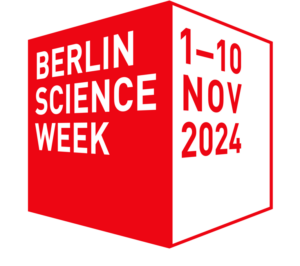
Daylight: the unknown priority in urban planning
Panel discussion on 1 November 2024, 12:00-13:30,
Museum für Naturkunde Berlin and online
Link to the livestream
Lichtzauber: Die Superkräfte des Tageslichts entdecken
Workshop for kids (in German) on 1 November 2024, 12:00-13:30, Museum für Naturkunde Berlin
The Sky and its Colours: How Daylight Affects Us
Exhibition on 1-2 November 2024, Museum für Naturkunde Berlin
More details above or on berlinscienceweek.com.
At Berlin Science Week
For the first time, three Daylight Awareness Week events were part of Berlin Science Week.

12:00-13:30
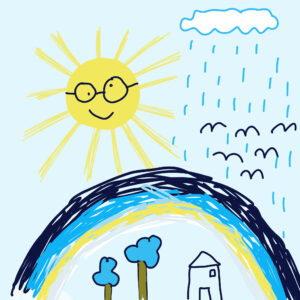
Hast du gewusst, dass Tageslicht Superkräfte hat? Entdecke die Magie der Sonne mit coolen Experimenten, Kunstprojekten und spannenden Licht-Abenteuern – für dich und deine Eltern!
by Martine Knoop, TU Berlin

Daylight is often taken for granted. Yet its presence, intensity, colour and variations are crucial to our health and the proper functioning of our bodies. Cities around the world continue to grow and become ever denser, making access to natural light increasingly difficult. This is far from being anecdotal and can have real consequences for the health and well-being of city dwellers.“The Sky and its Colours: How Daylight Affects Us” draws attention to this issue and invites visitors to take the time to observe the beautiful colours of the sky and its variations.
12:00-13:30
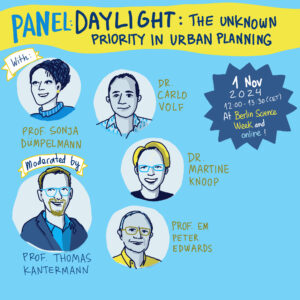
Join a panel of five experts from various scientific and architectural backgrounds as they discuss the importance of daylight and how the lack of it challenges modern cities. A range of solutions to the challenge will be explored, with reference to existing cities and their constraints. Two of the panellists are co-authors of the recent article “Why daylight should be a priority for urban planning”, which provided the inspiration for this panel discussion. The debate will be followed by a Q&A session.
PREVIOUS EDITIONS
Daylight Awareness Week 2023
Daylight and us: learning from the past?
Program flyer
Daylight Awareness Week 2022
Journey of Light: from Space to our Cells
Program flyer
Daylight Awareness Week 2021
Three reasons why we need daylight
Program flyer
Daylight Awareness Week 2020
When daylight rhymes with health
Program flyer
